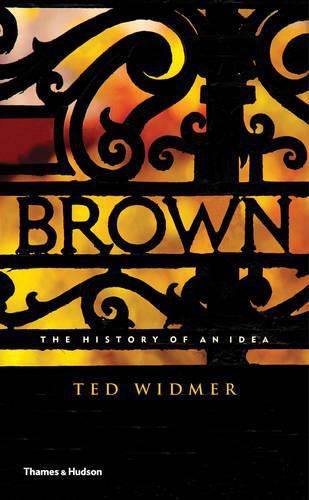Readings Newsletter
Become a Readings Member to make your shopping experience even easier.
Sign in or sign up for free!
You’re not far away from qualifying for FREE standard shipping within Australia
You’ve qualified for FREE standard shipping within Australia
The cart is loading…






Founded in 1636, essentially as a refuge for outcasts from Massachusetts, the colony of Rhode Island was unusually open-minded, leading Massachusetts Puritan Cotton Mather to refer to it as the latrina [or sewer] of New England. The sixth of the Ivy League universities to be founded, in 1764, Brown accepted students early on regardless of religious affiliation, and in 1969 adopted a student-proposed New Curriculum, allowing students to structure their education with relative freedom.
Over the last two and a half centuries, the university and its graduates have played a notable role in numerous defining moments in the American story, from the legacy of slavery (one of the founding Brown brothers was a leading abolitionist, the other an ardent defender and slave trader ), to the Industrial Revolution and education reform. Although there are plenty of prominent names–among them Horace Mann, John D. Rockefeller, Jr., Janet Yellen, and Edwidge Danticat–woven throughout, Widmer’s is a more ambitious account that weaves its threads into a variegated history of how a university can both mirror and spur the wider culture around it.
$9.00 standard shipping within Australia
FREE standard shipping within Australia for orders over $100.00
Express & International shipping calculated at checkout
Founded in 1636, essentially as a refuge for outcasts from Massachusetts, the colony of Rhode Island was unusually open-minded, leading Massachusetts Puritan Cotton Mather to refer to it as the latrina [or sewer] of New England. The sixth of the Ivy League universities to be founded, in 1764, Brown accepted students early on regardless of religious affiliation, and in 1969 adopted a student-proposed New Curriculum, allowing students to structure their education with relative freedom.
Over the last two and a half centuries, the university and its graduates have played a notable role in numerous defining moments in the American story, from the legacy of slavery (one of the founding Brown brothers was a leading abolitionist, the other an ardent defender and slave trader ), to the Industrial Revolution and education reform. Although there are plenty of prominent names–among them Horace Mann, John D. Rockefeller, Jr., Janet Yellen, and Edwidge Danticat–woven throughout, Widmer’s is a more ambitious account that weaves its threads into a variegated history of how a university can both mirror and spur the wider culture around it.